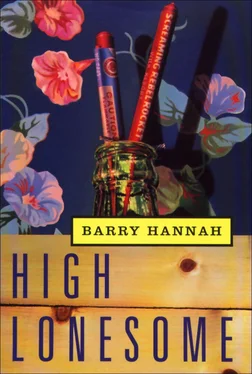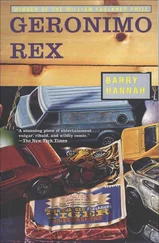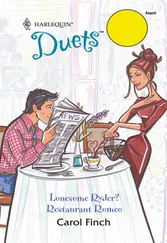Isn’t it time we met? he asks. Please take off that apron.
WHEN THE DETECTIVE COMES HE IS NEVER WHAT YOU WOULD think at all. The questions aren’t fair as you’d presume. But his gun and cigarettes are very long. They become enormous batons eventually. And my gracious the boots. They are like elegant scrollworked skis and the points on them could flatten a roach in a corner. As he remonstrates you feel that more honestly he would kick you in both eyes with them and slide in your blood.
For many years I was quiet. I did not talk, I had nothing to say long — millennia, it seemed — after the event of my puberty. I did not quite all shut up, not enough, because when my words went out they were worthless, mere agreement with the village wisdoms so that I could occupy my rented space without trouble. It’s the confidence that he is renting space, no more, that marks the foreigner, whereas the loud citizens call out as if rooted to favorable ground in a fort with hooting windows. I prayed to be firm, I prayed to be even sullen in my adolescence. But I was too much the blown leaf cracked dry under their boots, not even ignored. At the end I begged strong drink and large women to relieve me, just as I had while an urchin begged the walnut orchard to let go and smite me with those heavy nuts in their pods. Help me, touch me. I wished for women on bicycles to race to me with their hair like ragged wings, flying. I begged for that but could barely find my voice.
But once, playing my forlorn old trumpet, can’t it be forgiven that I saw her through the bare limbs of the tree next to my house in its March agony, into where the woman was, not on a bicycle come to snatch me up, but an older woman? Only in night dreams could I abide her. She was eating an enormous piece of bread, I thought, the whole loaf of French bread. It was so large it looked to be a separate thing delivered to her out of her drapes. A buttered French bread afloat there at her lips.
Long, long afterwards, long beyond that moment I held at my belly my old trumpet tasting of wet zinc, long after the woman seated almost clothed there through the bare notch of the early March limbs, past the years I drank enough to talk, then got gnawed by every wrong kind of woman there was, gnawed and thrashed by their awful stories (because I made them tell all to learn what being rightly human was about, even the woman who kept marrying others while we were courting I made tell everything before she got off her bicycle); on past this I only half realized what I had seen. Can’t I be pardoned, because what ecstasy holds a candle to the sudden intelligence one is granted years, whole cycles of war and famine, after viewing a rare event in ignorance? The collision of mind and flesh, all your veins pumped with light. Your own sweet innocence brings tears to your eyes, which see again revised, nostalgia on you like a barrel of walnuts. Time has been a kind uncle saving your inheritance until the moment was right. He has been patient, his hands out to you over the years. The woman’s husband was a rented soul too, in our neighborhood of pale clerks in their red brick dormings. He too was dull. He came to this town where nobody would ever ask him, How could you deserve this wife of yours? Drudge as you are, teacher of religious education, you must have rich hidden gifts, eh? This town with a surplus of flanking churches where the unctuous and the grim were sanctified. No ruffians took him off to the alley and told him, Your face is getting on our nerves, see, gray fool. While I played my trumpet at all their studied venerable blank heads, unable to speak.
After that afternoon their marriage somehow ground to a halt, a halt of a halting anyway, and a muted scandal hung around them when he went away. I would have known everything, had I known. She was Mediterranean, a little anyway, although her voice was the same as everyone’s. Some Sicilian, maybe, frowning out of her. Or she could be a tropical Jewess. I thought I had driven them apart with my trumpet and was vain. In three separate sleeps I dreamed of her and I was ruined for the regular girls. I couldn’t speak to them anyway. At every pass I was vanquished except in a state contest where they gave me a yellow ribbon for superior.
Then I went to the nationals where I was attacked by a Latvian judge and driven into the familiar dark again, where a bum with perfect pitch heard me and mugged me of my instrument. But I lingered there in New York and drank out the tanks of this my first metropolis. I felt I was on the last planet of man, where the dregs of all stories were, and I became for years a mere roving hole of audiation, a great ear in my courtly brogans rubbed off to the white underneath.
When I finally got my story out, the woman and the loaf, it had a terrible design to it, and the terrible part confused others. What terrible, how terrible, why terrible? Or was my story really kind, perhaps tragic too, the loaf floating out of her curtain, the man’s head in the curtain, he wore the curtain, wasn’t I remembering that finally? This was my first anecdote but I couldn’t blurt it out correctly. I didn’t have the light yet. The conjunction was not quite made, I had not driven the thing home. I was a sorry sight to my ruined acquaintances, shouting in my liquor, Show it, prove it, let’s have it out in the open! Drinking my cheap scotch, shouldering through mongrel New York. Or worse, meeting my own kind. It’s a hideous affront to see your own kind on the walks there. You want to run into them, through them, blaming them for the needless duplication. There they are with their own loyal monkeys around them, redundantios.
Nevertheless I went on searching for my trumpet. I had met the man who stole it many, many times, but he never recognized me. He wore a hat like my father’s except much taller in the crown, perhaps ten inches of hat there giving him away and the further clue that he had never moved from the spot where first he fell on me, but without the trumpet in his hands now. My trumpet old and zinc flavored but mine and a partner to my vision through the naked tree. But this man begged so violently I couldn’t just stand there accusing him with my new New York voice. No, he would get the jump on you begging so you felt he’d tear your limbs and clothes off for a dime, and he saw no redundancy in people, he was such a consumer, so needy. He begged the same man as yesterday, who always gave something to him. He would beg the same man over and over, each day freshly minted, unbeggared. People gave him buttons, Tums, lint, keys, all over again. During his racket I was trying to get a word in but at not too close range. He had sucked in my horn and I felt did not remember this. Besides, he was pure. I mean he barely acknowledged the turds and string thrown at him. It was begging itself, the clean form, he aspired to. I tell you there was not the least suggestion he was mad. You saw a great patient sanity in his eyes under the hat, a sort of rage. Now and again he broke into song, always sweetly pitched, almost angelic like a castrato. I believe the whole street thought him superior, I’d swear it. They feared him when the cold days began and he became even louder, fearless, their obliviousness sorely tested. With more cold he loomed more awful, a fiend let down off a bronze horse rampant with pigeons and green mange. He kept up in his thin, not too nasty, clothes, a suit with vest over a tuna gym shirt. On his cheeks were handsome small tracks of acne. This touched me, his old teen-agehood shared with mine. With his persistence in the thin clothes under the tall optimistic hat as the chill of the mongrel city went inward to your marrow, then grew like a vine around your feet. I began to love the man.
It started in pity as I saw him huddle, then hunker, some special wind from Maine smashing his pride. But he ascended to a racket of beseeching every now and then. Hardly anybody knew me, but I knew him. All the iron in me fled as love took over. Love is a buttered clarinet, that’s what it is. You’ve barely touched the instrument but begin your wretched toots on the alien thing.
Читать дальше












